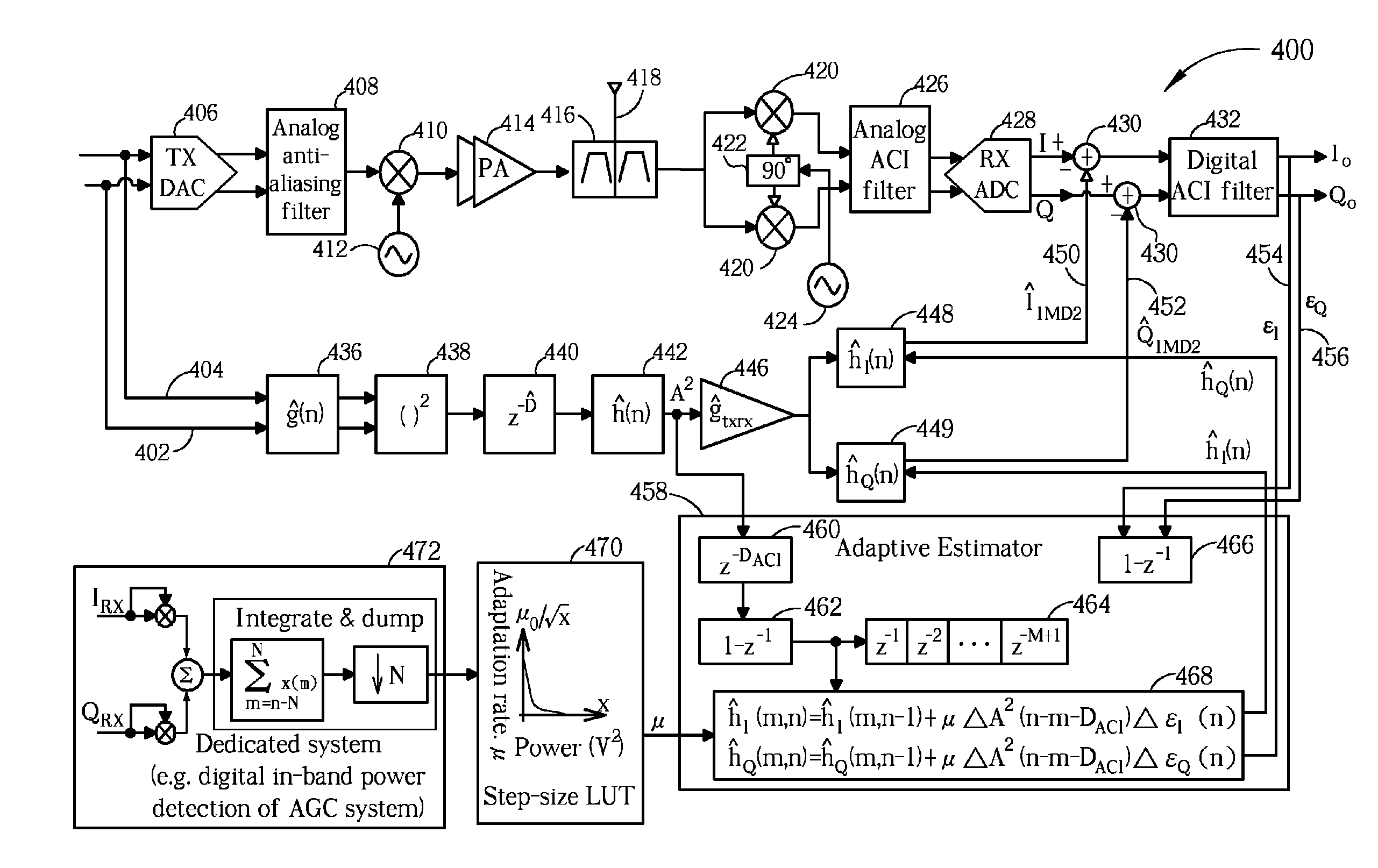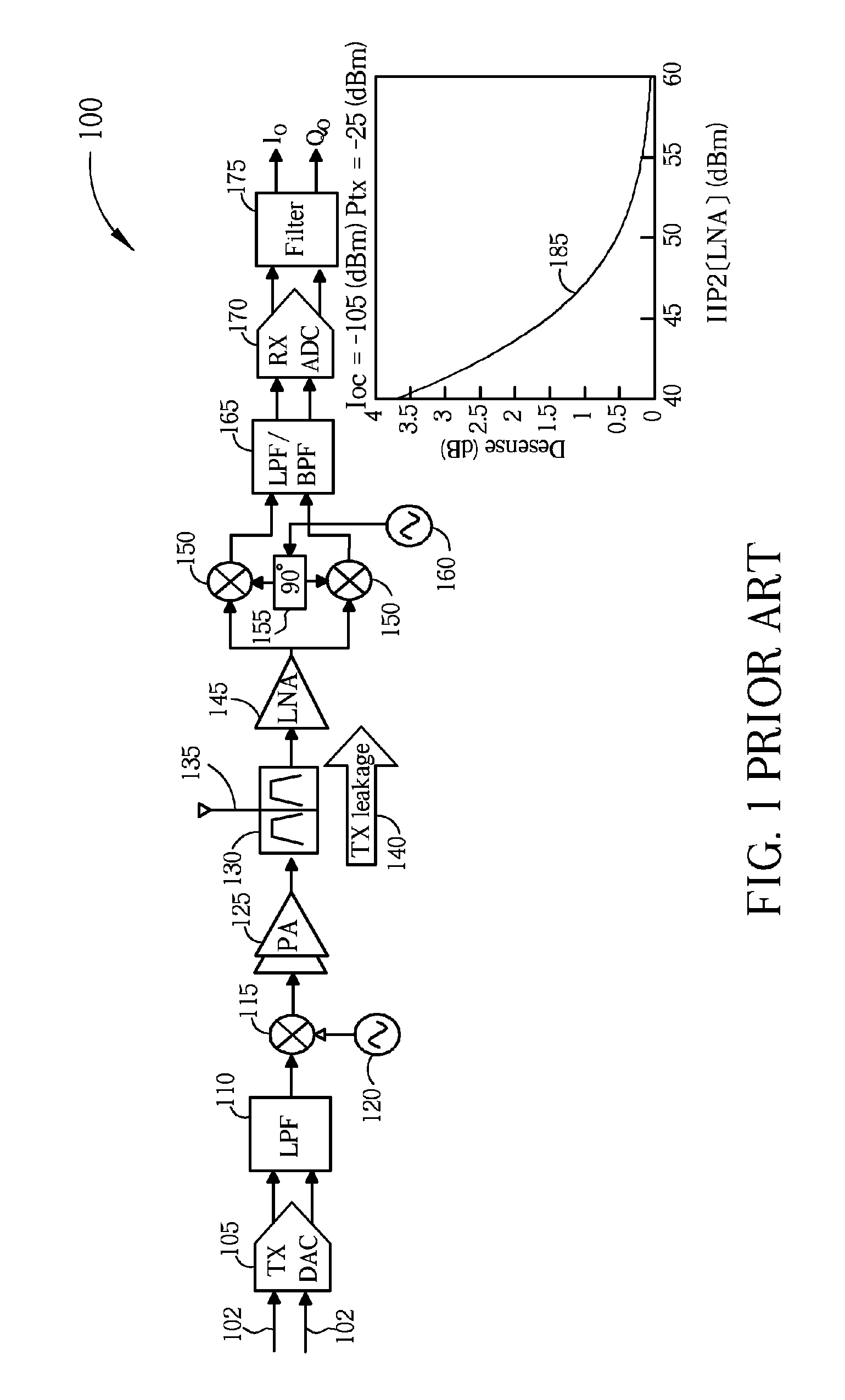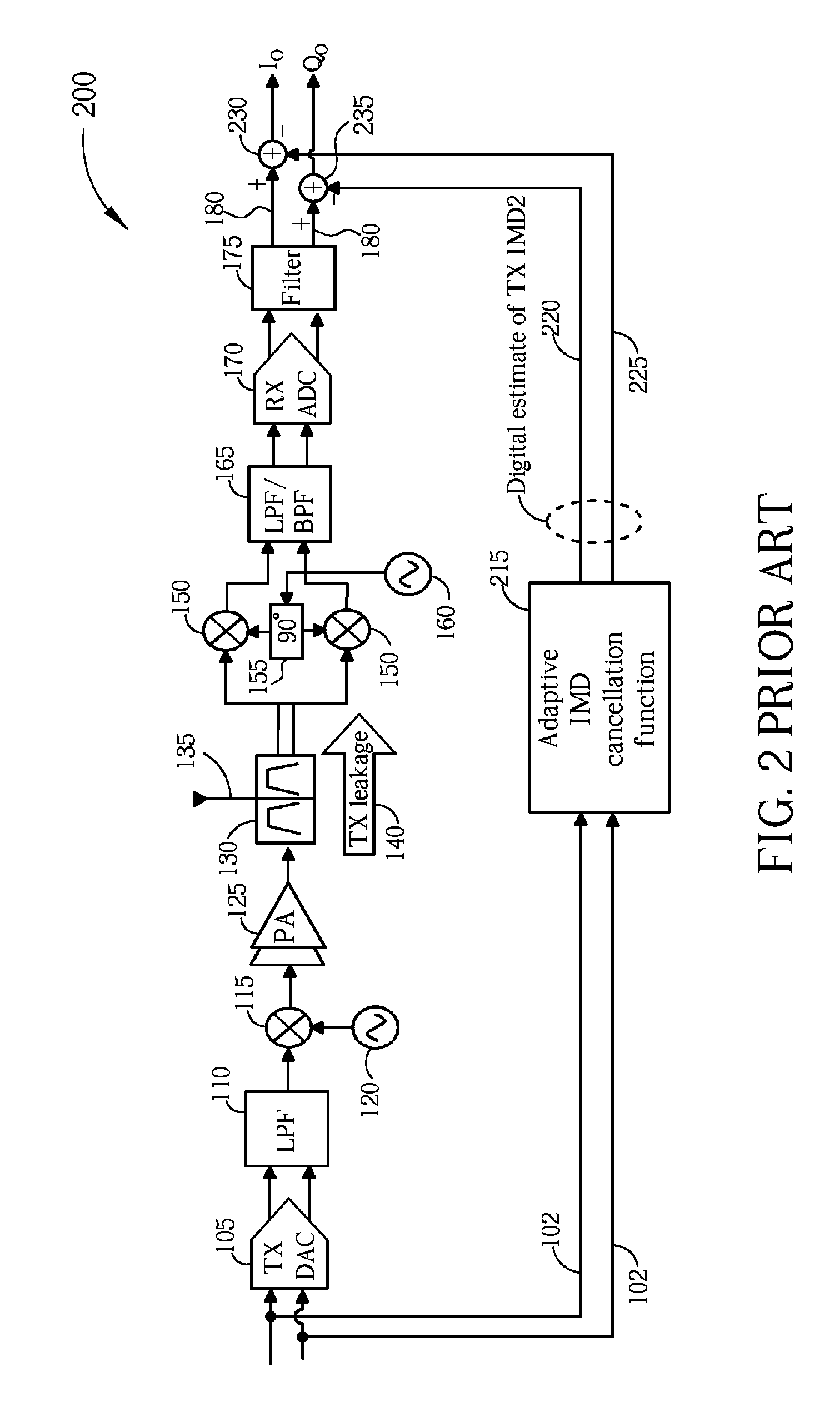Integrated circuits, communication units and methods of cancellation of intermodulation distortion
a communication unit and intermodulation distortion technology, applied in the direction of line-faults/interference reduction, transmission, electrical equipment, etc., can solve the problems of reducing the signal to noise ratio (snr), affecting the performance of the receive signal, and causing interference, so as to and reduce the second order inter-modulation distortion component
- Summary
- Abstract
- Description
- Claims
- Application Information
AI Technical Summary
Benefits of technology
Problems solved by technology
Method used
Image
Examples
Embodiment Construction
[0036]Examples of the invention will be described in terms of a wireless communication unit that supports code division multiple access communications. However, it will be appreciated by a skilled artisan that some concepts herein described may be embodied in any type of wireless communication unit and may, thus, not be limited to a CDMA communication unit.
[0037]Referring first to FIG. 3, a block diagram of a wireless communication unit (sometimes referred to as a mobile subscriber unit (MS) in the context of cellular communications or user equipment (UE) in terms of a 3rd generation partnership project (3GPP) communication system) is shown, in accordance with example embodiments of the invention. The wireless communication unit 300 contains an antenna 302 preferably coupled to a duplex filter or antenna switch 304 that provides isolation between receive and transmit chains within the wireless communication unit 300.
[0038]The receiver chain, as known in the art, includes receiver fr...
PUM
 Login to View More
Login to View More Abstract
Description
Claims
Application Information
 Login to View More
Login to View More - R&D
- Intellectual Property
- Life Sciences
- Materials
- Tech Scout
- Unparalleled Data Quality
- Higher Quality Content
- 60% Fewer Hallucinations
Browse by: Latest US Patents, China's latest patents, Technical Efficacy Thesaurus, Application Domain, Technology Topic, Popular Technical Reports.
© 2025 PatSnap. All rights reserved.Legal|Privacy policy|Modern Slavery Act Transparency Statement|Sitemap|About US| Contact US: help@patsnap.com



